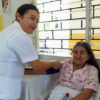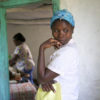HFG Toolkit Presentation
Health Finance, Presentations, Resource Mobilization, ToolsThe Health Finance and Governance (HFG) Project organized a multi-country workshop to support policymakers from public health and finance agencies in developing concrete action plans for mobilizing domestic resources for health. This presentation on the HFG toolkit addresses gaps in the Ministry of Health and Ministry of Finance relationship. The toolkit presents a set of […]





